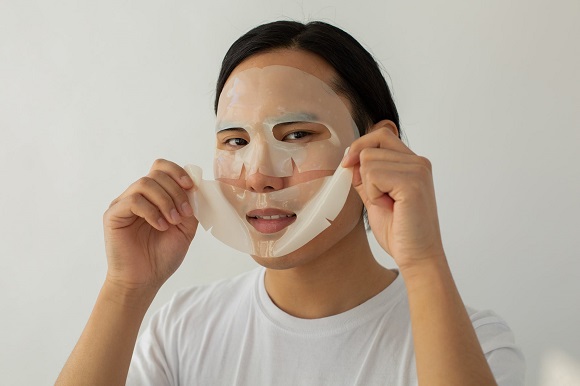Atopic dermatitis or eczema is a chronic, relapsing, pruritic (itchy), inflammatory skin disease that occurs more frequently in children than adults. Yet, it commonly extends into adulthood as a chronic condition, even more so in the past years. Although the prevalence of eczema varies widely between populations and countries, it’s said to have doubled or tripled in industrialized countries in recent decades. For example, 800,000 Australians have atopic dermatitis.
Additionally, atopic dermatitis patients have comorbidities such as asthma, allergic rhinoconjunctivitis, food allergies and mental illnesses. The most common complication of atopic dermatitis is the development of secondary infections. Moreover, psychosocial complications may also arise. In fact, sleep disturbance predisposes adults with atopic dermatitis at a 3 times higher risk to have depression compared with healthy individuals and the prevalence of suicidal ideation exceeds 20%.
Patients themselves are often reluctant when it comes to the following skincare routine. Suffering from atopic dermatitis doesn’t mean that you should deplete your mens skincare supplies. On the contrary, you should upgrade them and make smarter choices. Although pharmacological treatment like topical steroids and calcineurin inhibitors may be prescribed if your symptoms are severe and persistent, there are 2 essential things that you can and should regularly and committedly do on your own.
The 2 basic things to do are avoiding triggers of flares and maintaining skin hydration. Triggers can be patient-specific like certain foods, animals, dust mites, excessive heat or common mechanical and chemical irritants (e.g., wool clothing, solvents, fragrances). Following, regular bathing is recommended (up to once daily) but for short periods of time (e.g., 5–10 minutes) as excessive heat can be a trigger. Hypoallergenic cleansing gels can be used but you should go easy on them. Shortly after bathing, emollients should follow. Don’t be afraid to pamper your skin. It not only deserves it but also desperately needs it.
Should You Moisturize Atopic Dermatitis?

Clinical studies showed that including a moisturiser in your men’s skincare routine can significantly improve your skin barrier. Furthermore, daily moisturisation has been shown to reduce the incidence of flares and extend the time between them. Maintaining skin hydration is accomplished through introducing emollients or moisturisers. Emollients provide an occlusive barrier for atopic skin, retain moisture and protect it from irritants. Specially formulated emollient products are complex mixtures of chemical agents specially designed to make the epidermis softer and more pliable. Some have antimicrobial, anti-itch and anti-inflammatory actions.
Even so, ‘emollient’ sometimes refers to a specific ingredient that soothes the skin. Because of this, moisturiser is the more appropriate term. The terms ‘emollients’ and ‘moisturizers’ however are often used interchangeably. The stratum corneum, the uppermost layer of the skin, has a protective function due to its protein-enriched corneocytes (epidermal skin cells) and lipid-enriched intercellular bonds. Inflammation caused by atopic dermatitis disrupts your stratum corneum, subsequently predisposing you to secondary bacterial infections.
The defects in atopic skin include impaired barrier function due to trans epidermal water loss, reduced water-binding properties and loss of ceramides and other skin surface lipids. The major ingredients of an emollient are similar, consisting of petroleum products, glycerin, fatty acids and plant oil. Recent advances in the understanding of the pathophysiology of atopic have led to the production of new moisturizers targeted to replenish ceramides and natural moisturizing factors in the stratum corneum.
An ideal emollient should contain a combination of occlusive agents to slow down water loss, humectants to increase capacity to withhold moisture and lubricants to reduce friction against skin. You might have had the big Calvin Klein vs Hugo Boss debate in your head for this season’s perfume but unfortunately, fragrances are the first thing that should come to mind when asking yourself what skincare ingredients are bad for eczema.
In the new era of men’s skincare, men’s facial moisturizers commonly contain fragrances, emulsifiers, and glucosides but relatively few allergenic preservatives. In one study conducted to find the most common culprits of eczema, the most notable allergens were fragrances (present in 98.5% of products), propylene glycol/derivatives (32.3%), parabens (29.2%), and alkyl glucosides (26.2%). Interestingly, only 10% were due to PCP allergenic preservatives.
When browsing for moisturisers for atopic skin, choose mens skincare products that are paraben-free and free from artificial colours and fragrances. There are special cleansing gels, facial and moisturisers that are certified organic meaning that they are atopic skin-friendly due to their purity and low levels of artificial irritants. In addition, skin care products for men with added essential oils can aid your inflamed skin as they have recently shown potential therapeutic effects in treating dermatitis.
How Can I Get Rid of Eczema on My Face?

30% of men in the US, Europe, and Japan have reported sensitive skin i.e skin more prone to inflammation. The chief executive of Allergy & Anaphylaxis Australia (A&AA), Maria Said, has many stories where sufferers of atopic dermatitis are shunned, isolated and hopeless. Firstly, caring for the inflamed and itchy skin takes hours and many people withdraw from society. Secondly, they start losing hope due to the persistency of their symptoms. Thirdly, sensitive areas such as the face are commonly involved, compromising a person’s self-esteem and strength.
Basic requirements in managing eczema and sensitive skin include effective cleansers that do not compromise skin barrier integrity, alleviation of skin dryness, and restoration of skin barrier function through the use of therapeutic moisturizers. The selection of a skin cleanser is therefore an important part of managing these conditions.
Studies have reported clinical improvement with the use of soap-free cleansers in combination with topical treatments. While topical corticosteroids and immunosuppressive agents are mainstays of treatment for atopic dermatitis, therapeutic moisturizers are important adjuncts. Moisturizers improve skin hydration, reduce susceptibility to irritation, restore the integrity of the stratum corneum, and enhance the efficacy of topical corticosteroids. Facing the dilemma of natural vs. chemical men’s skincare products, the choice is evident. Whether it’s your face or your elbow, fewer irritants will cause less inflammation.
Can I Use Hyaluronic Acid If I Have Eczema?

Hyaluronic acid is a humectant meaning that it helps to attract water, therefore increases humidity in the epidermis and stratum corneum. Hyaluronic acid can intensify the barrier repair process as it helps the newly hydrated stratum corneum retain the attracted water. Several studies have proven hyaluronic acid as a worthy adjuvant to men’s skincare regimen for atopic dermatitis but it will not be effective on its own, as rarely anything is.
In one study, subjects were randomized to apply the hyaluronic acid-based emollient foam or the reference ceramide-containing emulsion cream to one side of the body with the other test product applied to the opposite side. Erythema, scaling, lichenification, excoriation, itching, stinging, and burning at baseline, week 2, and week 4 were rated.
Both formulations achieved statistically significant improvement in all clinical signs and symptoms of atopic dermatitis by week 4. The subjects significantly favoured the foam over the emulsion due to easier spread, higher moisture, ease of use and lack of odour. In addition, the foam was preferred for effectiveness and ability to soothe.
